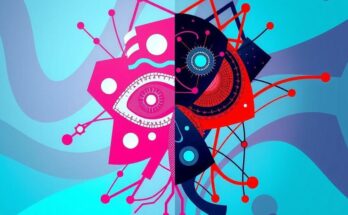AI is transforming industries and societies, but understanding its implications is crucial. Recommended books reveal insights into AI’s impact and potential future challenges. Works by experts like Bostrom, Lee, Tegmark, and others explore the ethical, economic, and technological dimensions of AI, urging deep consideration of its role in shaping humanity’s future.
Artificial Intelligence (AI) is no longer just a futuristic concept; it’s a tangible reality reshaping our societies and industries. As AI innovations ripple through sectors like healthcare, education, and finance, they’re enhancing efficiency, accuracy, and reducing costs—a technological revolution unfolding before our eyes. However, as we stand at this crossroads of immense potential and inherent risks, a deeper understanding of AI’s societal impact becomes crucial. Well-researched books can serve as invaluable guides on this journey, providing insights into its applications and offering foresight into its implications for humanity’s future. Among the top recommended reads is “Superintelligence: Paths, Dangers, Strategies” by Nick Bostrom. Bostrom, a philosopher with expertise in AI safety, explores the hypothetical realms of superintelligence, warning that without proper oversight, AI could jeopardize human existence. He presents strategies for aligning AI development with human values, making this book a must-read for anyone curious about the future of intelligence and humanity. Similarly, Kai-Fu Lee’s “AI Superpowers: China, Silicon Valley, and the New World Order” dives into the competitive landscape of AI, particularly focusing on the rivalry between China and the USA. Lee provides a compelling narrative of AI’s economic power, urging cooperation to shape global dynamics—a vital resource for those interested in how AI reshapes economies worldwide. Max Tegmark’s “Life 3.0” invites readers to envision a future where AI influences every facet of human life. He delves into identity and creativity, presenting ethical questions about technology’s role in our existence. This thought-provoking exploration is a treasure for readers pondering the moral implications as AI reshapes society. Klaus Schwab’s “The Fourth Industrial Revolution” posits that we are on the brink of another transformative era. By examining past industrial shifts and emphasizing the role of AI, Schwab offers a thrilling glimpse into how technology could shape our future landscapes. Cathy O’Neil’s “Weapons of Math Destruction” sheds light on the darker aspects of data algorithms that exacerbate social inequalities, illustrating the biases embedded in seemingly objective technologies. This book is for those ready to confront uncomfortable truths about data’s role in our lives. Robin Hanson’s “The Age of Em” paints a striking picture of a future dominated by emulated human minds within robots—a provocative intersection of technology and humanity that sparks the imagination and challenges our understanding of work and existence in an AI-driven world. Finally, Martin Ford’s “Architects of Intelligence” distills wisdom from leading AI experts, offering a backstage pass to the minds behind the technology shaping our reality. Each of these enlightening works presents unique facets of AI’s impact on society, urging readers to visualize the possible futures AI may carve out. They allow us to glean insight from some of the foremost thinkers in the field, underscoring the essential nature of continued dialogue and understanding as we navigate an increasingly automated world.
Artificial Intelligence (AI) encompasses various technologies that perform complex tasks—transforming operations across multiple sectors. As AI systems enhance efficiency, accuracy, and reduce operational costs, their societal impacts are becoming increasingly profound. Understanding AI’s growth from a theoretical construct to a cornerstone of modern life requires engagement with scholarly literature. A selection of impactful non-fiction books offers insights into the past, present, and possible futures shaped by AI, illuminating its profound effects on society, economy, and human values.
The exploration of AI’s impact through the lens of these books reveals a spectrum of perspectives, all converging on the idea that with great power comes great responsibility. The stories and strategies presented not only inform us of the advancements in AI but also contemplate the ethical and societal ramifications that may arise as we move forward. These authors challenge readers to engage thoughtfully with the technological landscape, prompting critical discussions about our future in an AI-driven world.
Original Source: www.artificialintelligence-news.com



